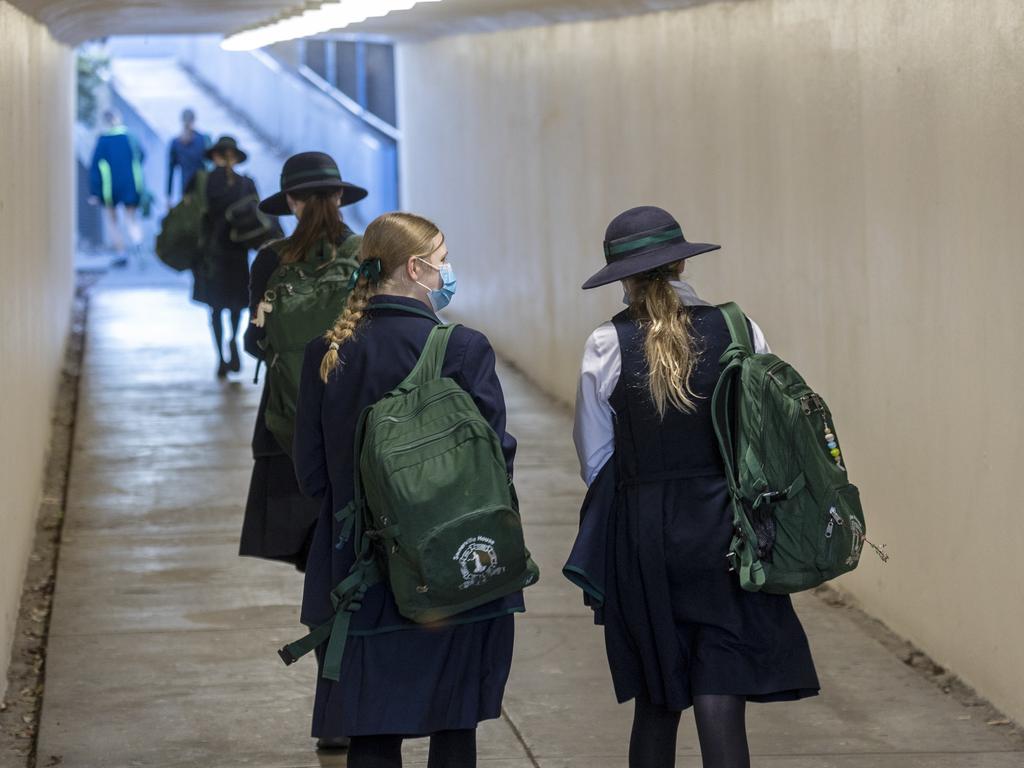Education ministers agree to major changes to NAPLAN tests
Australia’s education ministers have agreed to big changes to the standardised NAPLAN tests undertaken by students in years 3, 5, 7 and 9.
Students may need to score higher marks to meet new literacy and numeracy standards under an overhaul of NAPLAN testing given the green light by Australia’s education ministers.
Federal Education Minister Jason Clare and his state and territory counterparts have signed off on significant changes to the standardised tests undertaken by students in years 3, 5, 7 and 9.
Ministers agreed in 2019 through the National School Reform Agreement to improve NAPLAN testing and reporting including introducing new proficiency standards.
From this year, NAPLAN tests will be conducted entirely online and held in March instead of May, with parents and schools to receive individual results in July.
Students’ scorecards will also be simplified, with results to shift from being reported in 10 bands to four “proficiency levels”: Exceeding, Strong, Developing and Needs additional support.

Education ministers have agreed the new benchmarks will be set against a “challenging but reasonable” standard of literacy and numeracy expected for each year level at the time of testing.
“These will provide parents and schools with easy to read information about what they mean for a student’s strength in literacy and numeracy,” a communique from their meeting on Friday read.
“These updates to NAPLAN mean that students who need it can get more targeted support from teachers and parents, recognising that NAPLAN is only one of many ways in which schools track student progress.”
The Australian Curriculum and Assessment Reporting Authority will nominate a panel of teachers to determine the marks students will need to receive in order to meet the new standards.
Australian Parents Council chief executive Jenni Rickard said the changes were “fantastic”.
“I think the biggest change is the accessibility for parents. More parents are going to be able to understand what these results are telling them,” she told NCA NewsWire.
“NAPLAN isn’t a be all and end all report. The biggest thing we find for the results is they are a conversation starter for parents to be able to talk with their child’s teacher.”

A Productivity Commission report into the National Schools Reform Agreement found tens of thousands of students do not meet minimum standards every year.
In 2021, between 5 and 9 per cent of pupils didn’t meet NAPLAN minimum standards in reading or numeracy.
About one-third of the students who didn’t meet minimum reading standards in year 3 also didn’t meet minimum standards in year 5, suggesting once children fall behind at school it is even more difficult for them to catch up.
NAPLAN results between 2008 and 2019 showed an improvement in reading and numeracy in primary schools but not in secondary schools, static performance in writing in Years 3 and 5 and a decline in Years 7 and 9.
The results also revealed different patterns among the states and territories.
A major review of NAPLAN in 2019 questioned whether the minimum standards were set too low and recommended they be reviewed.
ACARA was contacted for comment.
Originally published as Education ministers agree to major changes to NAPLAN tests


